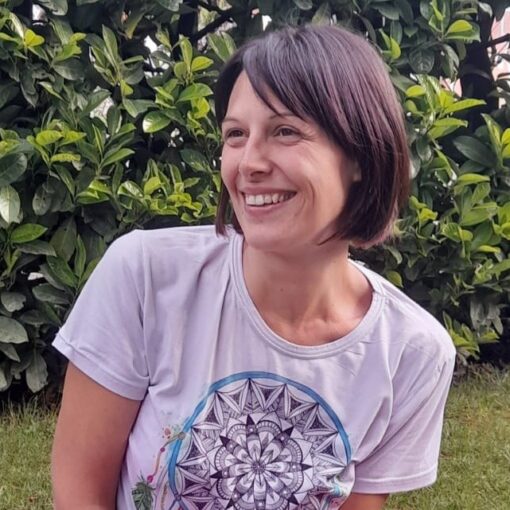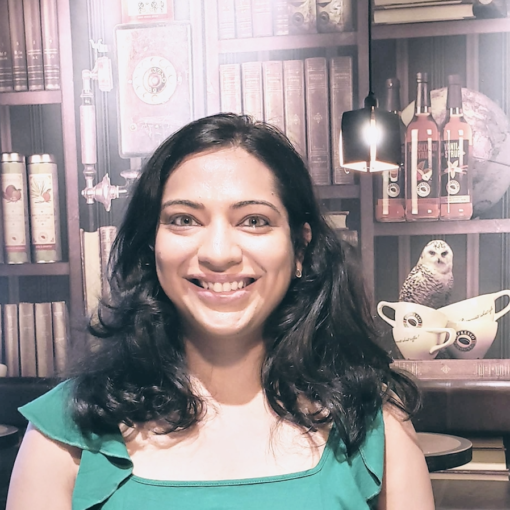PhD, Monash University
| Patent Attorney | |
|---|---|
| FPA Patent Attorneys Pty. Ltd. | |
Year entered into a non-academic position: 2020
Job Highlight: Recommending new experiments or strategies to clients that will enhance their patent protection and help them achieve their commercial goals.
Left academia after: 1 year of postdoctoral work
My research training set me up to: Quickly comprehend new inventions in the biotechnology space, and convey complex information clearly to a range of clients.
What’s your background?
Before joining FPA Patent Attorneys (FPA), I was a molecular immunologist at the Australian Regenerative Medicine Institute (ARMI). My PhD and postdoctoral research focused on immune cell biology and migration. I also undertook postdoctoral research using an antagomir-based approach for improving haematopoietic stem-cell production. I joined FPA as a patent scientist at the end of 2020, and registered as a Trans-Tasman patent attorney in 2023.
Why did you move away from academia?
A combination of reasons. Looking ahead at an academic career, I couldn’t decide on a clear focus for my research because I had too many wide-spanning interests. The thought of committing to another 2-4 year project as a postdoc was daunting for this reason. I also was beginning to feel like the entire breadth of my skills were not reaching their potential as an academic so I started searching for opportunities that would enable me to best use my skills in writing, communication, and strategic thinking, beyond the academic setting.
Is there anything you miss about academia?
Wearing sneakers and jeans to work every dayand having the occasional day where I could just put my headphones in and pipette or use a microscope all day (although my back is pretty happy this doesn’t happen anymore).
How did you get this job? Did you face any challenges when considering a move away from academia or applying for the role?
It was a standard job application process via a job search website, followed by interaction with a recruiter who was engaged by FPA to fill the role. At the same time, I had a postdoc role lined up at Massachusetts General Hospital (MGH) in Boston but the COVID pandemic hit and resulted in a change of plans.
The job application process for the patent attorney role was longer and more vigorous than the postdoc process, which was a lot more informal and reliant upon my scientific resume.
In hindsight, this makes complete sense to me, as the patent attorney role requires a more well-rounded skillset (not just lab skills), and in most cases, the firm invests in your further studies to become a patent attorney, representing a big investment for the firm in your personal development.
What motivated you to/why did you choose the sector you transitioned into?
I had encountered a few patent attorneys at various networking events, and the way they described their roles was appealing to me.
Did you think you had the skills required for your current position before you started? Were you right?
Yes, I did, I knew I had scientific expertise, very strong writing and communication skills, the ability to grasp complex ideas quickly, as well as excellent time management skills. These have all served me extremely well in my new role – particularly time management as patent attorneys live and die by deadlines.
Did you have any preconceptions about your sector that proved to be wrong?
I underestimated how many tasks patent attorneys do other than writing patent applications! There is much more to the process of obtaining a granted patent and enforcing its rights. I also had a preconceived notion that I would mostly use my science knowledge, with a sprinkling of law. In my experience, the reality is more 50/50, and some days are very legal-heavy and others very science-heavy!
But as a lifelong learner, I’ve taken this in my stride as an invaluable experience to learn more about a completely new field, and to develop expertise outside of science in the area of patent law.
Can you describe a typical week in your job?
Not really, every week is different, which is one of the benefits of the job!
A week can involve doing a range of tasks:
- searching the patent landscape for applications from competitors
- preparing arguments to respond to a patent examiner’s report
- meeting with clients to discuss their patent portfolio strategy or a patent application that needs to be drafted
- conducting due diligence ahead of commercial deals being made
- assessing a client’s freedom-to-operate in view of existing patents from other parties
- writing articles and attending events.
Do people with a PhD frequently get hired in the company/sector?
Yes – the majority of my colleagues who are patent attorneys in the life sciences sector hold PhDs.
What are your favourite parts of your job?
- Working collaboratively with very intelligent and creative people -my colleagues and our clients (locally and overseas).
- Being constantly exposed to the newest ideas in the biotechnology space.
- Having opportunities to excel and reach my full potential, by working on a variety of complex matters and tailoring work for range of different scenarios.
Do you have any advice for current graduate students and postdocs considering a career outside of academia?
Remember that not all scientists wear lab coats – hanging up your pipettes and leaving the lab doesn’t stop you being a scientist.
FPA Patent Attorneys is a top-tier, Australian-based intellectual property firm that solely focuses on patents and designs. We use our deep expertise to bring insights, solve problems and co-create custom solutions for our clients.
Whilst FPA are registered to practice in Australia, New Zealand and Singapore, we also have extensive experience in the Southeast Asian (SEA) patent market where we provide superior outcomes for clients when navigating this burgeoning and increasingly important region.
FPA is a major provider of advisory services to Australia’s leading universities, research organisations and companies. In addition to patent prosecution, FPA has cultivated deep relationships with incubators and investors, such that we are often the first port of call as part of the due diligence process when they are looking to invest in a new start-up. Our attorneys are also heavily involved in contentious matters, whether these are directly between parties, at the patent office, or providing assistance to lawyers before the Courts.
To find out more about working at FPA, please visit: https://www.fpapatents.com/careers/





